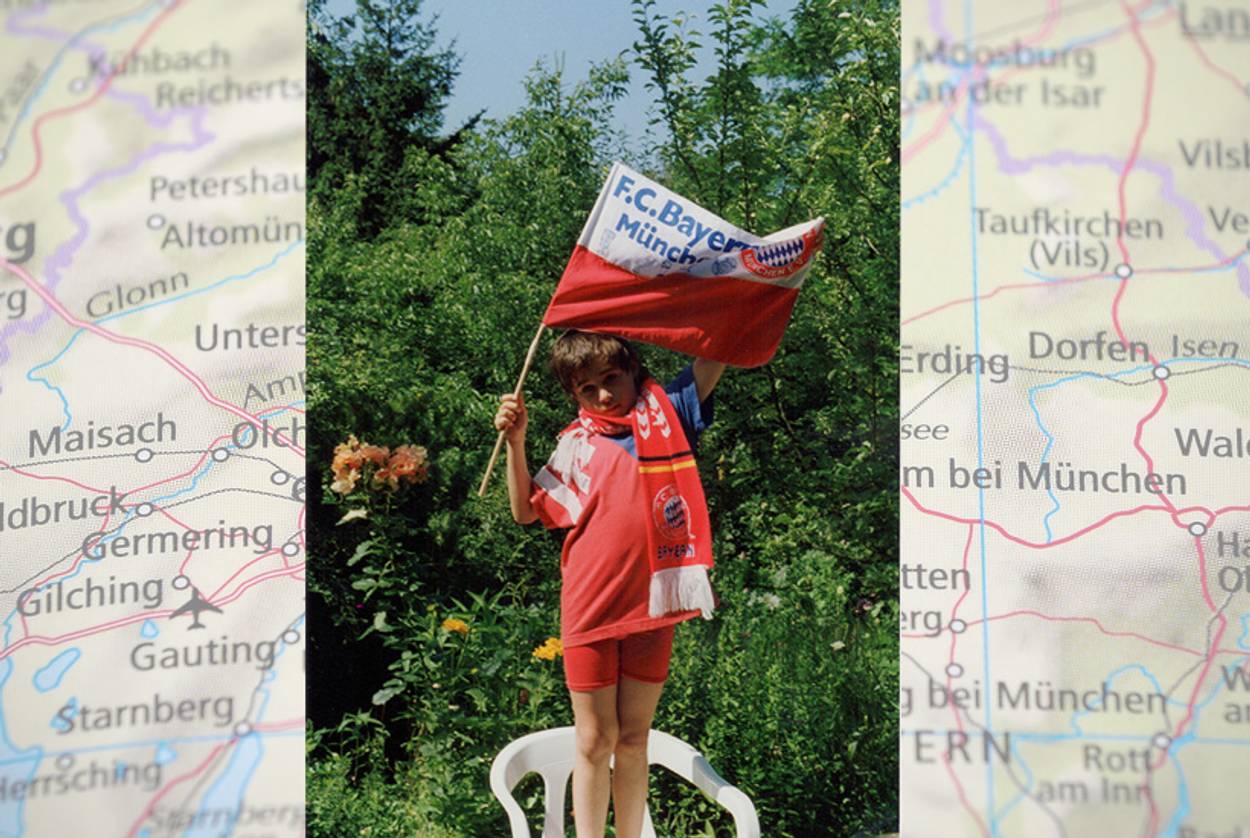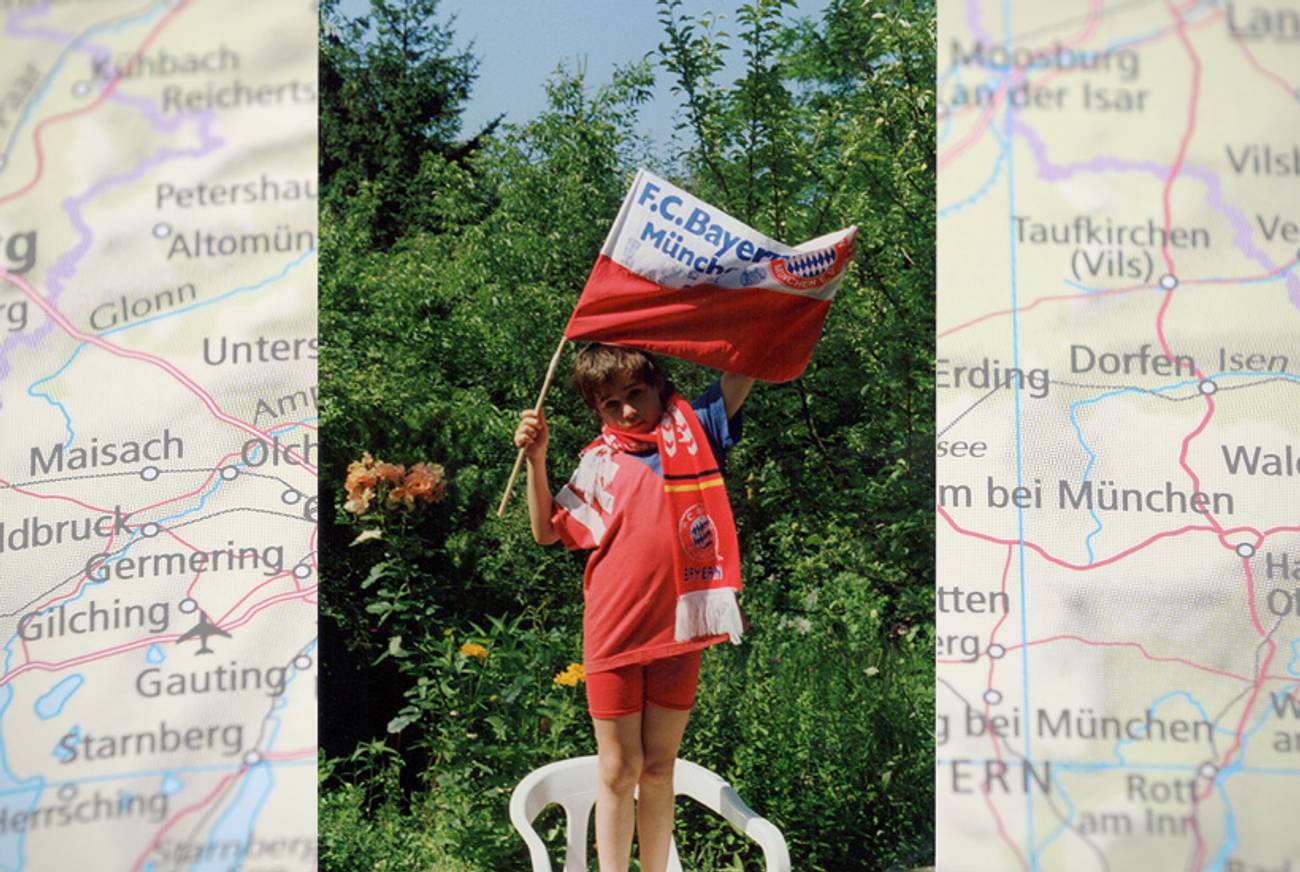A Reluctant Jew in Post-Holocaust Germany
Yascha Mounk’s entertaining new memoir sheds light on postwar history and current German politics




To listen to a Vox Tablet conversation with Yascha Mounk, the author of Stranger in My Own Country, click here.
In the year 1946, what country had the highest Jewish birthrate? Strange and even macabre as it may sound, the answer is not the United States or Palestine, but Germany. In Stranger in My Own Country, his informative and entertaining new book, Yascha Mounk explains this paradox. Of the 600,000 Jews who lived in Germany in 1933 when Hitler came to power, barely 15,000 were still present in 1945, after emigration and the Holocaust had taken their toll. The centuries-long history of German Jewry, which had produced so much splendor and misery, was effectively at an end.
But after the war, some 200,000 Jewish refugees from Eastern Europe found themselves in Displaced Persons camps, administered by the victorious Allies, mainly on German territory. In some cases, Nazi concentration camps (including Bergen-Belsen) were repurposed to house these Jews, who could not return to their home countries and were not yet free to go to Israel or America. And as Mounk writes, these temporarily German Jews were eager to be fruitful and multiply: “Newborn babies became a joyous symbol that Hitler’s ‘final solution’ had failed. A whole new generation of Jews saw the light of day in Germany’s DP camps.”
This story serves Mounk as a reminder that, despite what we might automatically assume, Jewish life in Germany never completely stopped. Most of the Jews in German DP camps left the country as soon as possible, but some remained, having established business or personal ties there. Later, anti-Semitic campaigns in communist Poland sent a new wave of Jews west to Germany. And since 1989, a sizable number of Soviet Jews have decided to make their homes in what is now Europe’s most prosperous democracy.
But what is it like to be a Jew in Germany in the postwar era? What would lead even a handful of Jews to choose to make their lives in the country that was responsible for the Holocaust? And how did the descendants of the perpetrators treat the descendants of the victims? These are the questions at the heart of Mounk’s book, which starts out as a memoir but evolves into something more like a history and a polemic. Accessibly written and full of humor—one chapter is titled “A Boy Named Jew,” after the Johnny Cash song “A Boy Named Sue”—Stranger in My Own Country uses Mounk’s own experiences to shed light on postwar German history and current German politics.
Mounk was born in Germany in 1982 and spent his entire childhood there, moving from city to city with his mother, an orchestra conductor. But at the age of 18 he left the country to go to college in England, and then he came to America for graduate study. (He is currently a doctoral candidate at Harvard, as well as an editor of the web magazine The Utopian.) “German is, and will forever remain, the only language I speak without an accent,” he writes, but by the end of the book, he has declared himself to be, at heart, an American—more specifically, a New Yorker: “Given who I happen to be, I feel much more at home in New York City than in Munich or Berlin.” Clearly he believes that there is, even today, a deep incompatibility between being German and being Jewish.
In fact, Mounk was only German at all because of a historical accident. As he explains in his introduction, his mother’s parents were Polish Jews who survived the Holocaust in the Soviet Union, while most of their family was killed. They returned to Poland after the war to help build the communist society in which they deeply believed. But their faith in communism was betrayed when, in 1968, the Polish government launched an anti-Semitic campaign, designed to drive out the tiny minority of Jews still remaining in the country after the Holocaust. Mounk’s grandparents and their two children were pushed out of Poland and had to decide where to go to remake their lives.
His mother, Ala, then 20 years old, was told that the best place for her to pursue her studies in sound engineering was the university in Detmold, Germany. She arrived there on a student visa, assuming her stay would be temporary: “To move to Germany forever was out of the question. To move there just for a degree, just for a few years, was something else entirely.” But she ended up marrying a fellow Polish immigrant who, by a quirk of ancestry, was entitled to claim German citizenship. The two eventually divorced, but years later, when Ala gave birth to Yascha, he inherited her citizenship. Out of this series of accidents, he grew up German, instead of Polish—or Israeli or Swedish, to name two other countries where various family members ended up.
Stranger in My Own Country starts off on this autobiographical note, but Mounk is plainly too reticent to qualify as a genuine memoirist. We never hear a word about his father, for instance, except that his parents were not married. (The last name “Mounk,” we learn late in the book, was his mother’s invention, meant to replace her unpronounceably Polish last name.) Even when it comes to his own childhood as a German Jew, Mounk offers only a few representative snapshots rather than a full, introspective narrative. It becomes clear that he is writing about himself only as a case study in the larger subject that really interests him—the evolution of German feelings about Jews.
Growing up Jewish in Germany, Mounk explains, meant constantly feeling like an outsider. But this was not because he was subjected to discrimination: “For me personally, it wasn’t primarily violence or hatred that made me feel that I would never be a German. It was benevolence. Far from being anti-Semitic, most Germans I met were so keen to prove to me that they weren’t anti-Semitic that they treated me with the kind of nervous niceness usually reserved for the mentally handicapped or the terminally ill.”
Hatred isn’t funny, but embarrassment is, and the anecdotes Mounk tells read like comic sketches. Summoned for army service, Mounk takes advantage of a legal exemption for people “whose direct ancestors were persecuted by the Third Reich on grounds of their ethnicity,” explaining that as a Jew he is not required to serve. This leads to a bureaucratic burlesque as a series of embarrassed officers try to figure out the right procedure to use in this unprecedented situation. When one officer starts to tell him that the necessary form won’t be ready until Christmas, he interrupts himself: “ ‘I mean, by Hanu—’ Panicked, he gave up a heroic attempt to remember not only the name but even the pronunciation of Hanukkah. ‘By the twenty-fourth of December. Definitely. I promise.’ ” On another occasion, friends who were trashing Woody Allen in conversation abruptly change their tune when Mounk enters the room, afraid to say anything bad about one Jew in front of another.
Other memories, however, are less innocuous. Mounk grew up knowing nothing about Judaism: “My being Jewish had no more significance to me than any number of other abstract facts I knew to be true of me—what hospital I was born in, for example.” But as always happens, this ignorance did not equal indifference: “I knew I was Jewish because, whenever somebody said the word ‘Jude’ on the street, Ala shrank into herself even as she craned her neck to hear what was being said.” When a teacher called the roll at school and asked each student whether they were Catholic or Protestant, Mounk’s declaration that he was Jewish led to laughter from the class: “Are they laughing at me because I’m a Jew? If so, is it funny to be a Jew?”
Mounk goes on to set his own experience against the background of postwar German history. He gives a quick sketch of West Germany’s tortuous confrontation with its Nazi past, from the hushing-up of the Adenauer years through the openness of the 1968 generation. Some of the episodes Mounk relates are famous, such as Chancellor Willy Brandt going down on his knees at the Warsaw Ghetto memorial, or the eye-opening broadcast of the American miniseries Holocaust; others will be new to non-German readers. Still, the outline of the story Mounk tells is conventional, and his book serves better as an introduction to the subject than as a new analysis of it.
The most provocative part of Stranger in My Own Country comes at the end, when Mounk warns that the current generation of Germans is getting fed up with Holocaust guilt. Rather than continue to think of their country as uniquely culpable and potentially dangerous, German politicians have started to break old postwar taboos—committing German troops to action in Kosovo, for instance, and bucking the Atlantic alliance. Even Angela Merkel’s reluctance to use Germany’s wealth to end the euro crisis is a sign, Mounk believes, of this new German resentment—“the determination of many Germans to stand on their head the supposedly submissive policies [of] the Federal Republic.” On a more personal note, Mounk feels the same resentment at work when an acquaintance tells a horrible Holocaust joke in front of him. “Why can’t a joke about the Jews be funny?” she demands. “The Holocaust happened 60 years ago. We should tell jokes about the Jews again!”
While Germany continues to wrestle with its own feelings about Jews—and, more consequentially, about Muslims, including its large Turkish population—Mounk has opted to emancipate himself from the whole tangled mess by emigrating. He now feels more at home at his mother’s summer house in Tuscany, he writes, or in the cosmopolitan and Jewish city of New York, than he does in his native country. At the end of the book, he even proclaims that New York is the place where he is “free not to be a Jew.” This is an understandable reaction, coming from someone who has mainly experienced Jewishness as an awkward burden. But of course, a Jew is never free not to be a Jew—and a writer who publishes a whole book about being Jewish is not exactly fleeing the identification. Better to say that Stranger in My Own Country marks the end of one phase of Mounk’s exploration of his unusual Jewish identity, and perhaps the beginning of another and more important one.
***
Like this article? Sign up for our Daily Digest to get Tablet Magazine’s new content in your inbox each morning.
Adam Kirsch is a poet and literary critic, whose books include The People and the Books: 18 Classics of Jewish Literature.
Adam Kirsch is a poet and literary critic, whose books include The People and the Books: 18 Classics of Jewish Literature.